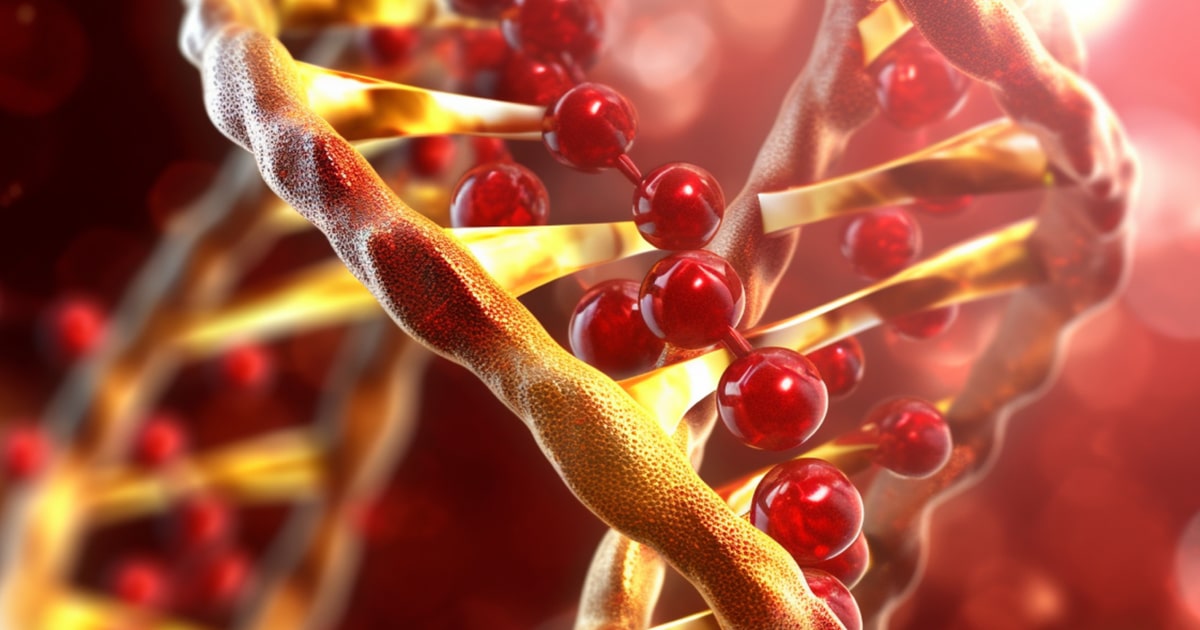
Expert Reviewed By: Dr. Brandon Colby MD
Understanding Hypertrophic Cardiomyopathy
Hypertrophic Cardiomyopathy (HCM) is a complex genetic disorder affecting the heart muscle, characterized by an increase in the thickness of the left ventricular wall. This condition can lead to severe complications, such as heart failure, arrhythmias, and sudden cardiac death. While the symptoms and severity of HCM can vary, understanding the underlying genetic causes and utilizing advanced diagnostic tools can help identify high-risk patients and provide appropriate management strategies.
Genetic Causes of HCM
Research has shown that HCM is primarily caused by mutations in sarcomeric protein genes, which are responsible for the contractile function of the heart muscle. According to the Genetics of cardiomyopathies: hypertrophic cardiomyopathy article, mutations in genes encoding for myosin heavy chain, myosin-binding protein C, and troponins are the most common genetic causes of HCM. However, non-sarcomeric genetic causes such as mutations in genes encoding for calcium-handling proteins and structural proteins have also been implicated in the development of the disease.
Diagnostic Tools for HCM
Early diagnosis and risk stratification of HCM are crucial for the effective management of the disease. One of the most advanced diagnostic tools for HCM is cardiovascular magnetic resonance (CMR), as discussed in the article The Role of Cardiac MRI in the Diagnosis and Risk Stratification of Hypertrophic Cardiomyopathy. CMR provides detailed images of the heart muscle and can accurately measure the thickness of the left ventricular wall. This imaging technique can also help identify areas of scarring and fibrosis, which are associated with an increased risk of sudden cardiac death.
Advantages of Genetic Testing in HCM
Genetic testing is a valuable tool in the diagnosis and management of HCM. It can help:
- Confirm the diagnosis of HCM in patients with suggestive clinical findings
- Identify at-risk family members who may be carriers of the genetic mutation
- Guide treatment and management decisions based on the specific genetic cause of the disease
- Provide prognostic information for patients and their families
Contemporary Screening Strategies for HCM Families
In the article Proposal for Contemporary Screening Strategies in Families With Hypertrophic Cardiomyopathy, new screening strategies for HCM families are proposed, considering the value of genetic testing and the need for extended diagnostic serial echocardiography past adolescence. These strategies include:
- Offering genetic testing to all first-degree relatives of HCM patients with a known genetic mutation
- Performing serial echocardiography in genetically positive individuals to monitor the development of HCM
- Continuing serial echocardiography in genetically negative individuals until the age of 18-21 years, as the penetrance of HCM increases with age
- Considering additional genetic testing in cases of uncertain clinical diagnosis or when new gene mutations are discovered
Conclusion
Increased left ventricular wall thickness, a hallmark of Hypertrophic Cardiomyopathy, is a complex genetic disorder with potentially life-threatening consequences. By understanding the genetic causes of HCM and utilizing advanced diagnostic tools such as CMR and genetic testing, healthcare professionals can identify high-risk patients, provide appropriate management strategies, and offer valuable information to patients and their families. As research continues to uncover new genetic causes and improve diagnostic techniques, the outlook for individuals with HCM and their families will continue to improve.
About The Expert Reviewer
Dr. Brandon Colby MD is a US physician specializing in the personalized prevention of disease through the use of genomic technologies. He’s an expert in genetic testing, genetic analysis, and precision medicine. Dr. Colby is also the Founder of and the author of Outsmart Your Genes.
Dr. Colby holds an MD from the Mount Sinai School of Medicine, an MBA from Stanford University’s Graduate School of Business, and a degree in Genetics with Honors from the University of Michigan. He is an Affiliate Specialist of the American College of Medical Genetics and Genomics (ACMG), an Associate of the American College of Preventive Medicine (ACPM), and a member of the National Society of Genetic Counselors (NSGC)